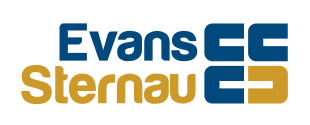Accrual vs Cash Accounting: Which Is Right for You?
Cash or accrual? This quick guide shows how each method shapes profit, taxes, and growth - so you can pick the right fit for your business.
Table of Contents
Your choice of accounting method is the lens through which you’ll view your entire business. Get it wrong, and you’ll lack a clear understanding of your finances. The two contenders, accrual vs. cash accounting, offer different perspectives. One tells you exactly what’s in the bank register right now. The other shows you what you’ve actually earned, even if the check hasn’t arrived.
That said, here is an in-depth guide to accrual accounting vs cash accounting. Explore to find out which one is the right fit for your business.
Key Takeaways
- Core difference: Cash accounting records income/expenses when cash moves; accrual records them when earned/incurred—giving a bank-balance view vs. a profit-performance view.
- Cash method fits simple ops: Best for freelancers/sole proprietors or small service businesses with little inventory and minimal credit terms; it’s easy to run and offers clear, real-time cash visibility.
- Accrual for accuracy and scale: Better reflects true profitability, supports forecasting, aligns with GAAP, and is expected by lenders/investors; required if you exceed $25M in revenue or plan to go public.
- Trade-offs: Cash is simpler and can defer taxes until payment is received, but can distort performance and hinders planning. Accrual is more complex and can hide cash crunches unless cash flow is tracked separately.
- When to switch: Move to accrual as complexity grows—inventory, long-term contracts, extending credit, or seeking outside funding.
- Compliance note: Switching methods generally requires filing IRS Form 3115; make the change at the start of a new tax year and involve a CPA.
- Practical lens: Choose based on whether you prioritize immediate cash management (cash method) or strategic insight and growth readiness (accrual).
Cash vs Accrual Accounting – Key Differences
The difference between the cash accounting vs accrual method boils down to when you record a sale or a purchase. Cash Accounting is what it sounds like. You record income only when the cash lands in your account. You record an expense only when the money leaves to pay a bill, mirroring how most of us handle our personal finances.
On the other hand, Accrual Accounting operates differently. You record revenue the moment you earn it and expenses when you incur them, regardless of when cash actually moves. This method matches earnings to the efforts that generated them.
Basics of Cash Accounting
Think of cash accounting as the digital equivalent of managing a personal checkbook. It’s a straightforward system where income enters your records only once a customer’s payment clears. Likewise, an expense doesn’t appear until the moment your payment to a supplier processes. This approach possesses two defining characteristics:
- Records income and expenses only when cash changes hands. Think about sending an invoice to a client in March, but not getting paid until April. With this method, the income is recorded in April’s books. The same goes for a purchase you make in June but pay for in July. It’s logged as a July expense.
- This approach is straightforward, making it a great fit for smaller operations. It provides a clear, real-time picture of the cash you actually have on hand. For starters, it’s ideal if you don’t have many outstanding invoices or a lot of inventory.
Basics of Accrual Accounting
Accrual accounting adopts a more sophisticated, big-picture perspective. It prioritizes the economic substance of transactions over the simple movement of money. The goal is to match financial activities to the period in which they truly relate. Its core principles are:
- Captures income and expenses when earned or incurred, regardless of cash flow. Under this method, the March invoice is recorded as March revenue. The June supply purchase is a June expense, even if the bill is paid later.
- Matches revenue and expenses accurately per period and aligns with GAAP. This “matching principle” offers a truer measure of periodic profitability. It is mandated by GAAP for public companies and businesses exceeding $25 million in revenue.
Have Questions About the accounting method for your business?
Advantages and Drawbacks of Each Method
Choosing between cash vs accrual accounting translates to what matches your operations and strategic goals. Each method is unique and can significantly impact decision-making.
Cash Accounting – Pros & Cons
Cash accounting is often the default for new businesses, prized for its straightforward approach. It’s like managing your personal checkbook: you have a real-time, unambiguous view of the money you actually have.
Pros
- Crystal-clear cash flow: You always know your exact bank balance. No guesswork.
- Easier to manage: Less paperwork, simpler tracking. You can often handle it yourself.
- Potential tax flexibility: You don’t pay taxes on income until you actually receive it, which can be a lifesaver for cash flow.
Cons
- A misleading picture: Your books might show a fantastic month because you collected old invoices, while you’re actually doing new work at a loss. It distorts true performance.
- Blind spots: With no tracking of accounts receivable or payable, long-term planning is a shot in the dark.
- Not for growth: If you have ambitions to scale or seek investors, you’ll be forced to switch later.
Accrual Accounting – Pros & Cons
When comparing the accrual vs cash accounting method, the former provides a more in-depth view of your company’s financial health.
Pros
- True profitability: Gives you a true, clear picture of whether you’re making money.
- GAAP compliant: Can help you attract investors, secure larger loans, and go public.
- Scales seamlessly: No need to overhaul your accounting method in the long run.
- Smarter forecasting: Access solid data to spot trends and make informed plans for what’s ahead.
Cons
- More complex: Demands careful bookkeeping and often an accountant’s help.
- Can mask cash crunches: Your income statement can show a profit while your bank account is empty. You must monitor cash flow separately.
- Resource-heavy: It demands more time and money to maintain correctly.
When to Use Each Method
Knowing the textbook definition of what is accrual accounting vs cash accounting is just the start. The real test is applying that knowledge to your unique business landscape.
When Cash Accounting Works Best
Stick with cash accounting if you’re self-employed. The method suits a sole proprietor, freelancer, or small service-based business that has little inventory and rarely deals with credit from customers or suppliers. In that case, the simplicity of cash accounting is a huge advantage.
When to Use or Switch to Accrual Accounting
Move to accrual accounting when your business gets more complex. The hard rule is that if you exceed $25 million in revenue or plan to go public, then it’s mandatory. But you should seriously consider it long before that if you carry inventory, work on long-term contracts, regularly extend credit, or are seeking outside funding.
Transitioning Between Methods
The IRS requires you to file Form 3115. With this in mind, it’s crucial to make the change at the start of a new tax year to keep your records clean. This is where a good CPA is extremely helpful. Professionals can navigate the tax implications and ensure your software can handle the transition smoothly.
Conclusion
Ultimately, the cash based accounting versus accrual decision hinges on a fundamental balance between simplicity and strategic insight. Your choice is a trade-off. Cash accounting gives you simplicity and a clear focus on maintaining immediate cash flow. Accrual accounting gives you strategic depth and the intelligence needed for sustainable growth.
FAQ
- Q1: When must I use accrual?
A: If average annual gross receipts exceed ~$25M (per IRS rules) or you carry inventory in certain cases, or you plan to seek investors/bank debt, accrual is typically required.
- Q2: Can I mix methods?
A: You can use cash for tax while keeping accrual management reports. For taxes, hybrids are limited; follow IRS rules and be consistent.
- Q3: How do I switch methods?
A: File IRS Form 3115, ideally at the start of a tax year. Adjust opening balances (A/R, A/P, inventory, prepaid/deferrals) and update your accounting software.
- Q4: Which method helps with cash planning?
A: Accrual shows profitability; pair it with a 13-week cash-flow model and A/R collection KPIs to avoid “profitable but broke” surprises.
- Q5: What about inventory-heavy businesses?
A: Accrual is usually better. It matches COGS to sales, tracks margins by SKU, and supports reordering and forecasting.

